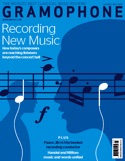Texte paru dans: / Appeared in: |
|
|
Outil de traduction (Très approximatif) |
|
|
Reviewer:
David Vickers Marenzio’s Quinto libro di madrigali a sei voci (1591) was dedicated to his Roman patron Virginio Orsini, Duke of Bracciano, a pupil of Cavalieri, friend of Caccini, and quite possibly Shakespeare’s inspiration for the music-loving Duke Orsino in Twelfth Night. The madrigals celebrated the duke’s recent marriage to Flavia Peretti; their names are mentioned explicitly in the softly affectionate opener ‘Leggiadrissima eterna Primavera’. Their marriage was also commemorated by the publication of poems by Tasso, whose sensual verses ‘Amatemi ben mio’ and ‘Nel dolce seno della bella Clori’ receive enthralling performances by La Compagnia del Madrigale. Marenzio’s clever mastery of polyphony and appealing word-painting are crystal-clear in the evocations of wandering in a pastoral paradise and the sound of a thousand mellifluous birds in ‘Ecco che ’l ciel a noi chiaro e sereno’.
It is no mean feat that this recording has been produced by the singers themselves, and engineered by their fully participating tenor Giuseppe Maletto. Self-critical perspective is clearly not a problem for these artists, who freely reorganise Marenzio’s madrigals into a sequence different from the original published order, and three additional madrigals are included from contemporaneous mixed anthologies. Marenzio placed his 16-minute setting of the poet Guarini’s canzone ‘Baci soavi e cari’ near the end of the book but here it forms the emotional centrepiece of the recording: the unfurling description of a lover’s kisses permit all kinds of glorious opportunities for the singers’ seemingly telepathic understanding for chiaroscuro, impeccable tuning and innate grammatical sense. Lively antiphonal exchanges between the three upper and three lower voices in ‘Leggiadre ninfe e pastorelli amanti’ demonstrate their senses for harmonic shape and texture. Suffering, grief and melancholy are less conspicuous in this particular collection but are articulated beautifully in the book’s final piece, ‘Vivrò dunque lontano’, as each piercingly sweet dissonance resolves smoothly into blissful concord. |
|
|
|
|
|
Cliquez l'un ou l'autre
bouton pour découvrir bien d'autres critiques de CD |
|

/8424562228047.jpg)


